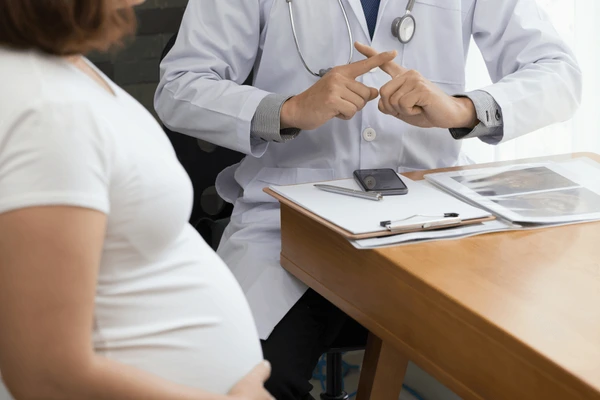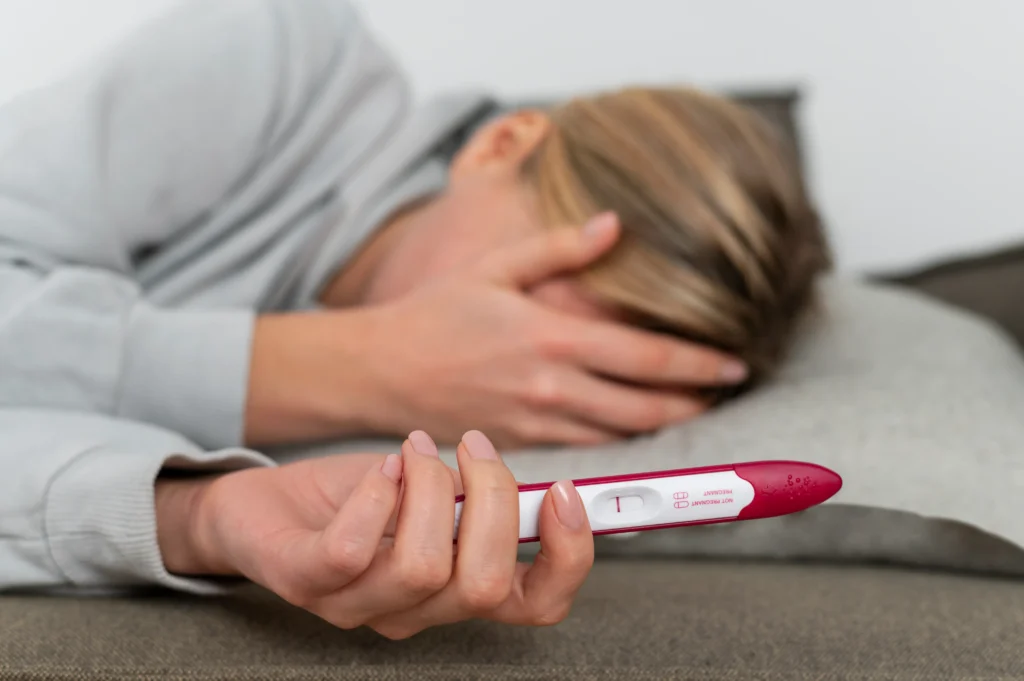-
Ganesh Talkies, Kolkata
Ganesh Talkies, Kolkata

Understanding the warning signs during pregnancy is crucial for a safe journey to motherhood. Learn when to seek help from a reputed gynaecologist and protect both you and your baby.
Pregnancy is a miraculous journey — filled with excitement, changes, and anticipation. Yet, amidst the happiness, it’s essential to stay alert to your body’s signals. Some changes are normal, but a few could indicate that something isn’t quite right. Knowing the warning signs during pregnancy early can help you act quickly, ensuring the safety of both mother and baby.
This guide helps you understand which symptoms require immediate medical attention and how to differentiate between normal pregnancy changes and warning indicators.
During pregnancy, your body undergoes countless transformations. Mild discomforts — such as nausea, fatigue, and backache — are common and often harmless. However, some symptoms may point to complications like preeclampsia, gestational diabetes, or infections that could risk your health or your baby’s development.
Early recognition and prompt medical care make a huge difference. The key is awareness — knowing when a symptom is a red flag rather than a regular part of pregnancy.

Below are some of the most crucial warning signs during pregnancy that every expecting mother should recognize and report immediately to her healthcare provider.
Light spotting can sometimes occur in early pregnancy and might not always indicate a problem. But heavy bleeding, accompanied by cramps or pain, could signal a serious issue like:
If you notice persistent bleeding or clot passage, seek emergency care immediately. Early medical attention can often make a difference in outcomes.
Mild stretching sensations are typical as your uterus expands. However, intense abdominal pain, sharp cramps, or continuous discomfort may indicate:
These pains are never to be ignored, especially if they come with bleeding, dizziness, or vomiting.
Occasional headaches are common, often due to hormonal shifts. But if you experience:
It could point toward preeclampsia, a serious pregnancy condition that requires urgent monitoring.
While some swelling is natural, sudden or extreme puffiness could signal high blood pressure or fluid retention issues. This symptom, particularly when combined with headaches or visual changes, warrants an immediate consultation.
Frequent urination is normal during pregnancy — but burning, stinging, or cloudy urine might indicate a urinary tract infection (UTI). Untreated UTIs can escalate to kidney infections and even trigger preterm labor.
After around 20 weeks, most mothers begin to feel regular baby kicks or flutters. A noticeable decrease in movement can signal fetal distress. Count your baby’s movements daily; if they reduce drastically, seek medical attention promptly.
A gradual increase in weight is healthy, but rapid or unexplained weight gain — especially accompanied by swelling — could be another indicator of preeclampsia. On the other hand, sudden weight loss might suggest poor nutrition absorption or other complications needing medical evaluation.
Fevers over 100.4°F (38°C) that don’t subside with rest or hydration may point to an infection. Infections like toxoplasmosis or listeriosis can impact fetal health, so timely diagnosis is vital.
Morning sickness is typical, especially in the first trimester. However, if you cannot keep food or liquids down for 24 hours or more, it may be hyperemesis gravidarum — a condition that can cause dehydration and nutrient loss.
Mild breathlessness is common as the uterus expands, but chest pain, palpitations, or difficulty breathing may indicate cardiovascular issues, anemia, or even blood clots — all of which require immediate evaluation.

Not every warning is loud or obvious. Some symptoms develop gradually and are easy to dismiss. Keep an eye out for:
Your instinct as a mother-to-be matters. If something doesn’t feel right, it’s always safer to check.
Pregnancy is deeply personal, and every body responds differently. While online knowledge helps awareness, it cannot replace professional medical evaluation.
Consulting an experienced and trusted specialist ensures proper diagnosis, reassurance, and guidance at every stage of pregnancy.
A highly qualified expert can:
Personalized care and regular antenatal checkups make pregnancy safer and more confident — for both mother and baby.
Don’t wait for symptoms to worsen. Contact your doctor right away if you experience:
It’s better to reach out once too often than once too late.
To minimize the risk of complications:
Healthy habits don’t just protect you; they help your baby thrive.

Q1. Are all cramps during pregnancy dangerous?
Not necessarily. Light cramps due to stretching are common. But if cramps are severe or come with bleeding or back pain, seek medical help.
Q2. When should I worry about spotting during pregnancy?
Light spotting can occur early on. However, heavy or recurring bleeding always needs professional evaluation.
Q3. What if my baby’s movements reduce suddenly?
Track your baby’s kicks regularly. If movements stop or reduce drastically, contact your doctor immediately.
Q4. Can stress cause complications during pregnancy?
High stress can impact blood pressure and hormonal balance. Practice relaxation, meditation, and maintain open communication with your healthcare provider.
Q5. Should I visit a gynecologist if I have mild fever during pregnancy?
Yes, especially if the fever is persistent or above 100.4°F. It may indicate infection and should not be ignored.
Pregnancy is a beautiful phase — filled with dreams, plans, and hope. But it’s also a time when listening to your body becomes essential. The warning signs during pregnancy are not meant to scare but to empower you with awareness.
When something feels different, trust your instinct. Expert medical guidance from the best lady gynaecologist in Kolkata, paired with your attentiveness, can ensure your pregnancy remains safe and joyful.
Every pregnancy is unique, and with care, vigilance, and professional support, you can embrace motherhood with confidence and peace of mind.